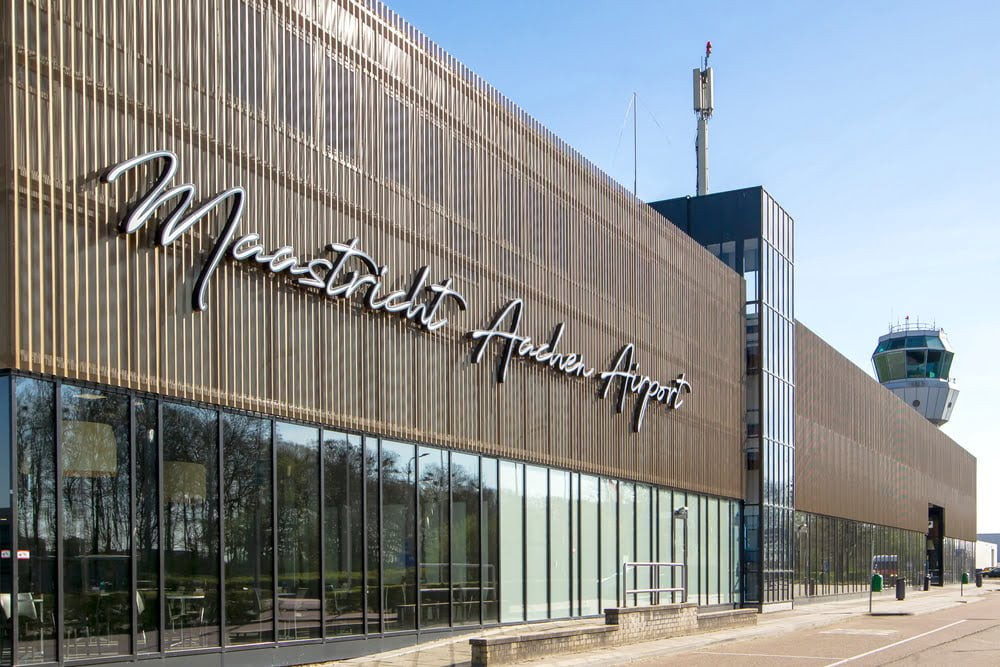For one day last month were cargo flights Redirected to Maastricht Aachen Airport (MST) after the disruption that the aviation sector based in Belgium on February 13. MST has entered to reduce the impact of a series of scheduled strikes across Belgium that include air traffic control operators, handlers and security personnel.
The Netherlands’ second largest air freight welcomes the cargo flights already scheduled, with MST willing to manage further flights as needed. National strikes across Belgium have caused the cargo flights major disruption, with no flights planned to climb or land from the Belgian airports, including Brussels and hatch.
“We are proud of our team’s effort to prepare for situations like this and move so quickly to make sure our airport is willing to operate passengers and cargo flights at short notice,” says Joost Meijs, CEO of Maastricht Aachen.
“Our resilience and strong operational achievement, we know, are reasons that we adapt to conditions and make sure we provide smooth operations and experience for the freight and passenger flights we welcome – our excellent location and transport links mean that disruptions should be minimal for passengers and freight shipments.”
Labor relations within the European air freight industry have been tense in recent times, with various significant disruptions affecting the operations. These disruptions stem from various factors, including disputes about payment, working conditions and broader economic challenges.
Strikes leading to great freight delays
In 2024, different industrial actions in Europe had direct implications for air freight operations. For example, in April 2024, French air traffic controllers performed strikes, which led to the cancellation of thousands of flights and significant disruptions in air traffic in Europe. These strikes had a significant impact on cargo flights, which led to delays and necessitated the dispatch of the shipping.
In October 2024, the global supply chain experienced significant disruptions due to widespread labor attacks in critical sectors, including air and space cruise, shipping, logistics and transport. These strikes have resulted in large cargo delays, increased costs and reduced capacity. Especially the air and space sector faced challenges, as strikes stopped production lines, which led to delays in aircraft’s deliveries and maintenance schedules. The cumulative effect of these strikes has stretched the air freight industry, which caused delays in cargo shipping and increased operating costs.
The sector has experienced significant labor disputes, mainly driven by wages that do not keep up with rising cost of living. The transport sector, including air freight, was particularly affected. For example, employees of the aviation industry, such as those at Brussels Airlines and Ryanair in Belgium, are working on industrial actions to seek better payment and working conditions.
At the same time, in 2024, Expeditors expressed concern about new safety requirements implemented by US and Canadian governments. These measures, which were introduced after incidents involving burning devices in European package networks, pose challenges for European air freight operators, leading to operational disruptions and greater investigation.
Brexit’s Shadow
Post-Brexit regulations introduced complexities for Cargo Airlines in the UK. For example, one Air, a British cargo aircraft, reported that Bexit-induced red tape forced it to send its Boeing 747s to the US for routine maintenance, which incur considerable environmental and financial costs. This situation stems from post-Brexit regulations that require British pilots and engineers to reject at considerable costs in the EU, along with the lack of mutual recognition of professional qualifications between the United Kingdom and the EU.
In July last year, several fires at European Cargo hubs were linked to a secret Russian plot testing methods to plant bombs on the US-bound cargo aircraft. Incidents occurred at DHL facilities in Germany, England and Poland, with parcels containing burning devices. Investigations have led to arrests in Lithuania and Poland, which emphasize significant safety issues in the air freight sector.
Two months later, potential labor attacks hurled over the US Eastern and Golf Coast Havens, posing a significant threat to the logistics sector. These potential strikes are expected to exacerbate existing pressure, especially as e-commerce growth has consumed substantial air freight capacity. The implications expanded beyond the ports, affecting the air freight, inventory management and the entire global supply chain. The anticipation of such strikes urged stakeholders to proactively prepare and explore alternative solutions to maintain a steady flow of goods.
Continuous labor disputes in Europe still pose threats to global supply chains. Unresolved disputes have significant consequences for global trade, especially as the end of the year approaches. Businesses and supply chain managers are requested to remain vigilant and proactive in their planning to reduce potential disruptions. Contingency plans include the avoidance of ports that are likely to be most affected by strikes, as well as investigating alternative routes and access points to ensure the continuity of operations. It can be converted into air freight dismissals to avoid blocked ports.
The European air freight industry has been facing a series of labor -related disruptions lately, which results from a combination of economic pressure, regulatory changes and industrial actions. A summary of some recent industrial disputes in Europe includes:
Belgium Nationwide strikes (2024) – Workers across Belgium, including airport staff, stopped on wage disputes and working conditions, and disrupted cargo operations at major airports such as Brussels and hatch.
Lufthansa Cargo Strikes (Germany, 2023-2024)-Reported strikes by ground staff and pilots over pay disputes caused widespread delays and cancellations in Germany, affecting the air freight movement.
French air traffic control strikes (continuous, several years) – Regular strikes by air traffic controllers on pension reforms and working conditions have disrupted cargo flights over France, affecting the transits such as Paris CDG.
British Border Force strikes (2022-2023) strikes by border staff and luggage handlers at major British airports such as Heathrow and Gatwick have caused logistical issues, delaying the delay of cargo and customs clearance.
Amsterdam Schiphol Airport Airport deficiency (2022-2023) staff deficiencies due to post-pandemic labor disputes have led to major delays in cargo handling and logistics at one of Europe’s busiest airports.
These events emphasized the importance of proactive management of labor relations and the need for robust contingency planning within the industry. As the landscape continues to develop, stakeholders must remain vigilant and adaptable to navigate the challenges posed by labor disputes and ensure the resilience of air freight surgery.


